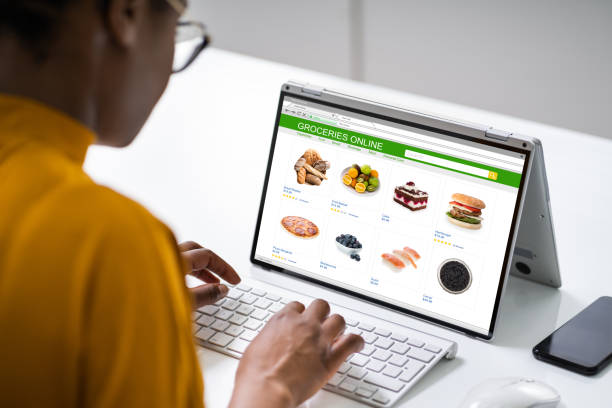
The 14 Best Business Podcasts Right Now
[ad_1]
Did you know a staggering 44% of the U.S. population has listened to a podcast, and among these, the best business podcasts are gaining significant traction? An incredible 40 million people tune into podcasts every week for education, entertainment, and inspiration.
This surge in popularity indicates that podcasts are becoming an increasingly prevalent medium to stay informed about the latest business and industry tips, trends, and updates. For business owners and entrepreneurs, this trend is particularly noteworthy.
Podcasts offer a unique blend of accessibility and depth, providing insights from industry leaders, successful entrepreneurs, and business experts. They serve as a valuable resource for keeping up-to-date with market changes, learning new strategies, and getting inspired by stories of business innovation and success.
In short, if you’re a business owner or entrepreneur and you’ve yet to explore the world of podcasts, you could be missing out on a goldmine of information and insights. The podcast phenomenon offers easy access to a vast array of knowledge and experiences, making it an exciting and enriching medium for anyone in the business world.
Our Methodology: How We Chose the Best Business Podcasts
Identifying the best business podcasts involves assessing a variety of factors that contribute to their value, relevance, and appeal to a business audience. To assist our readers in finding engaging and informative business podcasts, we use the following criteria, rated on a scale from 1 to 10, where 10 indicates the highest level of importance and 1 the lowest.
- Content Quality and Relevance
- Importance Scale: 9/10
- Rationale: We prioritize podcasts that consistently deliver high-quality, relevant content that is both informative and insightful for business professionals.
- Expertise and Credibility of Hosts/Guests
- Importance Scale: 9/10
- Rationale: The expertise and credibility of hosts and guests are crucial for providing authoritative and trustworthy insights.
- Production Quality
- Importance Scale: 8/10
- Rationale: Good production quality, including clear audio and professional editing, enhances the listening experience.
- Diversity of Topics and Perspectives
- Importance Scale: 7/10
- Rationale: We value podcasts that cover a wide range of business topics and offer diverse perspectives, catering to a broad audience.
- Frequency and Regularity of Episodes
- Importance Scale: 7/10
- Rationale: Regular and frequent episodes ensure continuous learning and keep listeners engaged over time.
- Practicality and Actionable Advice
- Importance Scale: 8/10
- Rationale: Podcasts that provide practical, actionable advice are highly valued, as they can directly impact listeners’ business strategies and decisions.
- Listener Engagement and Community
- Importance Scale: 6/10
- Rationale: Podcasts that encourage listener engagement and foster a community around them can offer additional value through networking and discussion.
- Accessibility and Platform Availability
- Importance Scale: 7/10
- Rationale: Easy accessibility across various platforms and devices is important for listener convenience.
- Ratings and Reviews
- Importance Scale: 7/10
- Rationale: High ratings and positive reviews are indicative of a podcast’s popularity and listener satisfaction.
- Innovation and Unique Approach
- Importance Scale: 6/10
- Rationale: Podcasts that bring unique approaches or innovative formats stand out and offer a refreshing change from conventional content.
By applying these criteria, we aim to provide our readers with recommendations for business podcasts that are not only informative and insightful but also engaging and practical for their professional growth.
The Best Business Podcasts
If you’re unsure which podcasts to listen to, take a look at the following best 14 business podcasts that U.S. listeners can get right now.
Key Highlights of Each Business Podcast
Dive into the distinct features and topics of the top business podcasts with these key highlights. Whether you’re an aspiring entrepreneur, a marketing professional, or someone interested in the intricacies of business wars, this list provides a snapshot of what each podcast uniquely offers.
- Entrepreneurs on Fire: Focuses on practical tips and inspirational stories for budding entrepreneurs.
- The Art of Hustle: Offers actionable business advice with a focus on marketing and entrepreneurial strategies.
- Rise and Grind: Delivers insights on enhancing productivity from high-profile business figures.
- Indie Hackers: Reveals the secrets of successful online business ventures through in-depth interviews.
- Marketing Over Coffee: Provides easy-to-implement marketing tips in a casual, accessible format.
- Foundr Podcast: A mix of inspirational stories and practical advice from renowned business leaders.
- Business Wars: Fascinating deep dives into the history and challenges of major global brands.
- Mixergy: Broad range of topics covered, ideal for entrepreneurs seeking diverse insights.
- Startups for the Rest of Us: Specializes in advice for launching and improving software products.
- Hack the Entrepreneur: Focuses on overcoming common entrepreneurial challenges.
- Demand Gen Chat: Offers expert advice on generating leads and revenue in B2B markets.
- Inside LaunchStreet: Provides a holistic view of business operations with actionable tips.
- The Marketing Companion: Blends humor with marketing expertise for an entertaining learning experience.
- StartUp: Real-world stories and experiences from startup founders and business professionals.
Entrepreneurs on Fire
Entrepreneurs on Fire is an award-winning podcast that was founded and presented by John Lee Dumas. The podcast stands out for its engaging format and quality content, featuring John interviewing inspiring entrepreneurs to help aspiring entrepreneurs achieve a seamless journey to business success.
These interviews delve into the experiences and lessons learned by successful business figures, offering listeners practical advice and motivation.
The podcast covers a range of topics, including innovative business strategies, overcoming challenges, and personal growth, making it an invaluable resource for anyone looking to navigate the entrepreneurial landscape.
The Art of Hustle
The Art of Hustle, co-produced by WeWork and iHeartRadio, is an informative platform for entrepreneurs and marketers. Founded by Anthem Salgado, a small business coach and marketing specialist, this popular business podcast offers each episode as a masterclass in business development.
It provides practical business advice and training designed to “untangle your to-do list and clear a pathway for new forward movement.” The podcast addresses various aspects of entrepreneurship, from effective marketing strategies to time management, helping listeners streamline their business operations and grow their ventures.
Rise and Grind
Rise and Grind is hosted by Shark Tank presenter Daymond John, one of the most prominent names in America’s business landscape today, Rise and Grind is a must-listen for those interested in the dynamics of business success. Each podcast features John interviewing a diverse array of leading business figures, discussing issues related to productivity, power, and performance.
These conversations are rich in insights, offering listeners a peek into the minds and methods of successful entrepreneurs and business leaders, thereby serving as a source of inspiration and practical advice for listeners at all stages of their entrepreneurial journey.
Indie Hackers
The Indie Hackers podcast, hosted by Courtland Allen, offers raw and unscripted conversations with the founders of profitable online businesses. This podcast is a treasure trove of insights for anyone looking to venture into the online business world.
Listeners can learn about successful marketing strategies and growth techniques directly from those who have experienced success in the digital marketplace. Each episode is packed with actionable tips and inspiring stories, making it an essential resource for online entrepreneurs.
Marketing Over Coffee
Marketing Over Coffee, recorded weekly in a coffee shop by hosts Christopher Penn and John Wall, is an invaluable resource for small businesses seeking practical marketing advice.
The podcast covers a wide range of marketing topics, including social media, copywriting, SEO, and affiliate marketing, providing listeners with tips and strategies that are both current and easily applicable. Its informal and conversational style makes complex marketing concepts accessible to entrepreneurs of all levels.
Foundr Podcast
Nathan Chan hosts the Foundr Podcast, a leading business podcast designed to help small business owners and entrepreneurs learn from the greatest minds in business today.
Recognized as the “go-to digital resource for the growing ranks of craft, self-made entrepreneurs – at every level of experience,” the podcast features interviews with renowned business leaders and experts, offering a diverse array of insights and actionable advice that are invaluable for business growth and personal development.
Business Wars
The Business Wars podcast, presented by David Brown, former anchor of Marketplace, offers an intriguing look into the stories behind some of the world’s biggest brands and their leaders.
By dissecting and analyzing challenges and inspirations faced by brands like Nike, Netflix, and Adidas, the podcast provides listeners with a deep understanding of the strategies and decisions that shape the business world. These real-life stories are not only inspiring but also educational, offering practical lessons in business strategy and leadership, all paired with high production quality.
Mixergy
Mixery is a popular business podcast hosted by the successful business owner and entrepreneur Andrew Warner. Each episode of this insightful podcast focuses on different aspects of running a business, from the initial stages of starting a venture to the complexities of building a sustainable, purpose-driven business.
Featuring interviews with successful and inspiring entrepreneurs, the podcast offers a wealth of knowledge, covering topics like innovative business strategies, overcoming challenges, and personal growth stories. These real-world insights are invaluable for anyone looking to navigate the entrepreneurial journey, providing both inspiration and practical advice.
Startups for the Rest of Us
Startups for the Rest of Us is an extremely useful business podcast that helps entrepreneurs, developers, and designers improve the way they launch software products. Hosted by experienced web app professional and author Rob Walling, along with programmer analyst Mike Taber, this popular podcast provides listeners with a blend of technical expertise and business acumen.
The discussions delve into actionable strategies for effective product development, marketing tactics, and overcoming common challenges faced by software startups, making it a must-listen for anyone in the tech startup space.
Hack the Entrepreneur
Hack the Entrepreneur, hosted by Jon Nastor, is a podcast geared towards developing the entrepreneurial mindset. The show explores the struggles, fears, and habits of small business owners, offering listeners a deep dive into the realities of entrepreneurship.
By examining the experiences of various entrepreneurs, the podcast provides valuable insights and strategies for overcoming obstacles and achieving success in the business world.
Demand Gen Chat
Host Emil Shour brings a wealth of knowledge to B2B marketers on the Demand Gen Chat podcast. Each episode features a candid interview with an expert in B2B marketing, exploring different topics like SEO, advertising, and career growth.
This podcast is an essential resource for professionals looking to enhance their lead generation and revenue-generating strategies in the B2B space, offering actionable advice and industry insights.
Inside LaunchStreet
Hosted by Tamara Ghandour, founder of the thriving online education and business community platform GoToLaunchStreet.com, Inside LaunchStreet examines the multifaceted aspects of setting up, running, and growing a business.
Each episode provides listeners with insights from inspiring figures in the business and marketing world. The podcast offers actionable takeaways at the end of each episode, making it a practical guide for entrepreneurs seeking to innovate and succeed in their ventures.
The Marketing Companion
Claiming to be the “world’s most entertaining marketing podcast,” the Marketing Companion stands out with its unique blend of humor and expertise.
Hosted by globally-recognized marketing author, consultant, and blogger Mark Schaefer, alongside the witty research expert Tom Webster, this podcast offers fun, engaging, and insightful discussions on all aspects of marketing. It’s an invaluable resource for businesses looking to stay ahead in the ever-evolving world of marketing.
StartUp
Described as arguably one of the top podcasts in the business world today, StartUp delves into the real-life experiences of starting and launching a startup. Hosted by Alex Blumberg and Lisa Chow, this popular podcast features interviews with professionals from various sectors of the business world.
Each episode offers an in-depth look at the challenges, triumphs, and lessons learned in the journey of building a startup, making it an essential listen for aspiring entrepreneurs and business enthusiasts.
Comparing Top Business Podcasts
For a comprehensive understanding of the best business podcasts available, refer to this comparison table. It outlines the key features and target audiences of each podcast, making it easier for you to choose the ones that best fit your professional interests and requirements.
| Podcast Name | Key Features | Best For |
|---|---|---|
| Entrepreneurs on Fire | Interviews with inspiring entrepreneurs. | Aspiring entrepreneurs seeking inspiration. |
| The Art of Hustle | Business advice and training. | Entrepreneurs and marketers. |
| Rise and Grind | Interviews on productivity, power, and performance. | Business professionals interested in efficiency. |
| Indie Hackers | Conversations with online business founders. | Online business owners and marketers. |
| Marketing Over Coffee | Tips on various aspects of marketing. | Small businesses looking for marketing advice. |
| Foundr Podcast | Interviews with business experts. | Entrepreneurs at all levels. |
| Business Wars | Stories behind major brands and their challenges. | Those interested in business stories and brand development. |
| Mixergy | Diverse business topics with successful entrepreneurs. | Business owners seeking broad insights. |
| Startups for the Rest of Us | Launching software products. | Entrepreneurs, developers, and designers. |
| Hack the Entrepreneur | Entrepreneurial mindset development. | Anyone looking to develop an entrepreneurial spirit. |
| Demand Gen Chat | B2B marketing strategies. | B2B marketers. |
| Inside LaunchStreet | Comprehensive business insights. | Business owners and marketers. |
| The Marketing Companion | Entertaining insights into marketing. | Businesses improving marketing skills. |
| StartUp | Insights into starting and launching a startup. | Professionals interested in startup culture. |
Image: Depositphotos.com
[ad_2]
Source link


















